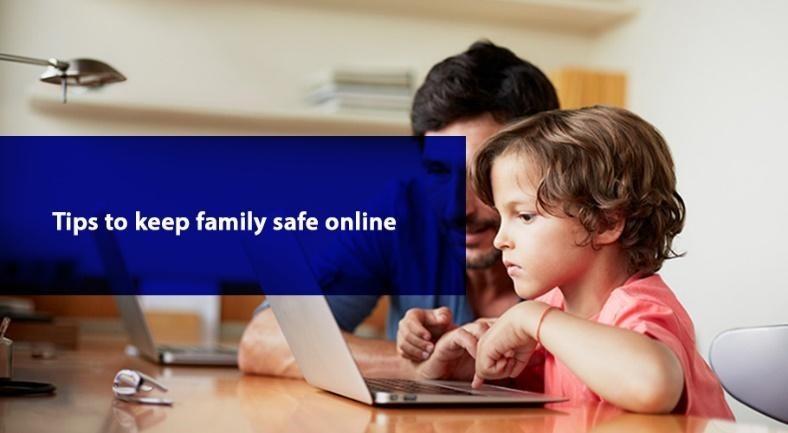Internet safety has always been an important topic that should be discussed amongst family members. There are loads of risks involved with online browsing and internet activities, which makes online safety even more important. Some strategies can help keep you and your family members safe from cyber threats.
By incorporating these online safety tips into your daily online activities, you can keep yourself safe from various security concerns. By keeping your guard up, you can even encourage your children to follow the safety measures. These measures will help you keep your personal information and profiles safe.
If you have an Optimum internet connection, you can also enjoy internet protection powered by McAfee. With this feature, you can protect up to twenty devices in your house from viruses, malware, and ransomware.
Internet Safety Tips for Everyone
Whether you are watching a YouTube video, scrolling through Instagram, or playing online games, it is important to know what are the possible dangers out there. It is never too late to talk about simple tips that will keep you and the people around you safe.
Talk about the Dangers
The first step is to begin talking to your children about the dangers of the internet. Children can make mistakes and leak personal information online with just a click of a button. To prevent such issues, you can begin talking to them about cyber threats and help them understand that the internet is not completely safe.
Remember, Your Identity Is Important
Younger children may not understand how dangerous it can be to reveal their personal information to the public. Your full name, birth date, the address – this type of info should not be shared online with other users and strangers. Scammers prey on unsuspecting users and can trick your children into sharing their social security numbers, which can be used for identity theft in a worst-case scenario.
Look Out for Strangers
We constantly remind our children to be wary of strangers and avoid talking to people they have not met before. The same rule applies to people online. Children and teenagers should not be speaking to people they do not know and prevent any further communication with them. Teenagers have a higher chance of falling victim to online predators, but that doesn’t mean that younger children are completely safe.
Be Wary of Phishing
Children will learn about the creative ways that scammers try to get their information at some stage in school. Until they do, it is necessary to remind your children, and yourself, to avoid clicking on any suspicious links. Remember, that banks and other providers don’t contact you for your social security details and account details. If you are unsure, you can always call your bank and confirm if the email was sent from them.
Choose Strong Passwords
Teenagers may seem to have a better understanding of the internet, which may be true. But that confidence can mess with their judgment, which causes them to skip out on some safety measures. Ask them to set up a strong password for their accounts, which will make it harder for hackers to infiltrate. You can also advise them to use password management programs that can help them remember their more complex passwords.
Secure Your Social Media Accounts
There is a high probability that your children have a profile on one or multiple social media apps. However, scammers have accounts on those apps as well. Even on social media, they are always looking to catch an unsuspecting user to let slip some personal information. Warn your children to not respond to suspicious accounts. It’s also a good idea to ‘follow’ or ‘friend’ your children on those apps to keep an eye on the people they follow and befriend.
Share Posts Mindfully
Teenagers and children are always thinking about new content to post on their accounts. Vacation images, selfies, location posts, and even your food posts may seem harmless. However, some images can give away a lot of information if you aren’t focusing on your content. An image of your travel ticket could reveal your personal information to strangers. When teenagers post an image of their newly received driver’s license, they can reveal details that should be kept secure. It is also
Shop from Secure Sites
If your teenagers have permission to place online orders, you need to warn them about fishy sites. They shouldn’t enter the credit card details online unless the website is secure. Teach them how to identify secure sites. The best indicator of a secure site is if it is running on HTTPS. This certificate encrypts data to help protect all visitors’ personal information. Check the URL and check if a padlock icon is showing.
Enable Privacy Settings
Web browsers, devices, and even internet service providers offer safety measures to keep your content safe online. Enable the privacy settings on your devices and browsers to keep your personal information secure. You can also contact Optimum customer service, to find out more about the protective measures they offer.
In Conclusion
These measures may seem like a lot, but they are necessary to help you stay safe online. While the internet may be full of risks, it’s also a wonderful space where you can do a lot of good. You can take advantage of these tips and protect yourself and your family to improve your online experiences.
